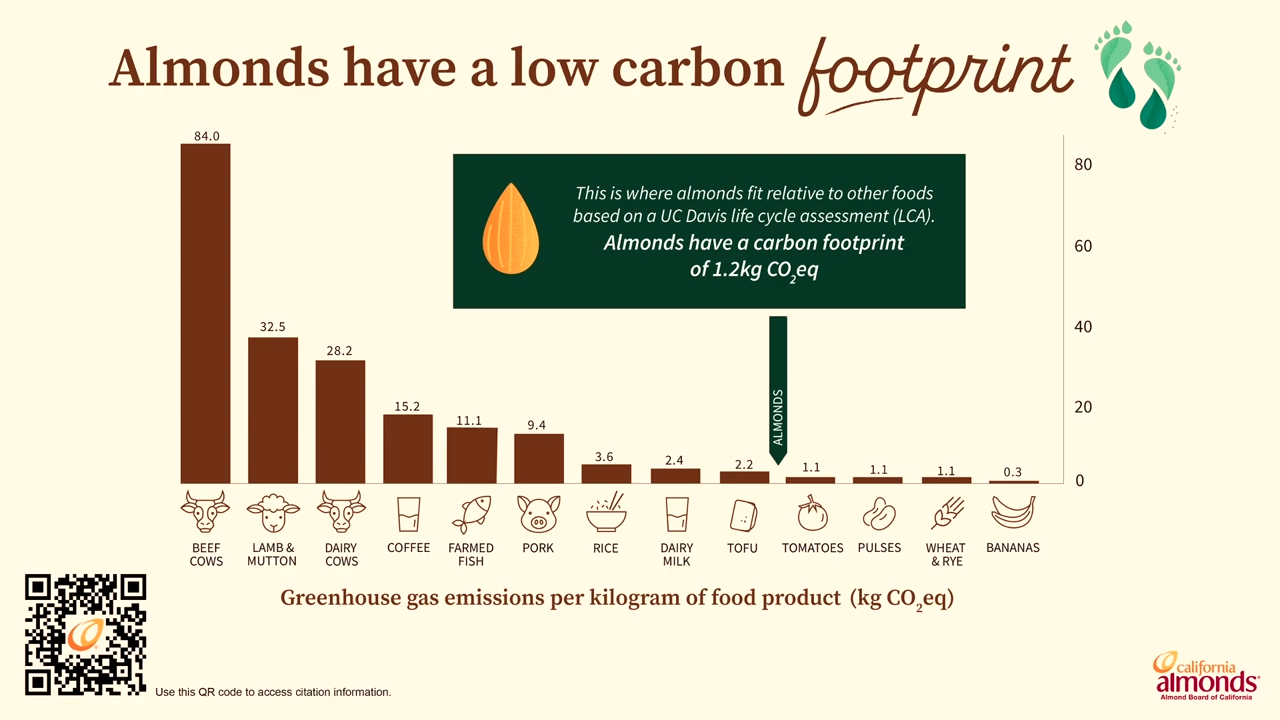Course Description
This course explores the almond industry’s comprehensive sustainability efforts, focusing on environmental stewardship, water conservation, biodiversity, and innovative farming practices. It highlights key trends and challenges, such as consumer concerns, regulatory demands, and misconceptions about almonds’ environmental impact. Through panel discussions, case studies, and research-backed insights, the course emphasizes how sustainability drives global demand and builds trust in California almonds.
Topics include the industry’s low carbon footprint, pollinator-friendly initiatives, and the use of co-products to minimize waste and save resources. Special attention is given to water management, showcasing advanced irrigation techniques, groundwater recharge efforts, and partnerships with conservation organizations. Real-world examples and storytelling underscore the role of family farms and the industry’s leadership in sustainable agriculture. By addressing challenges with innovative solutions, the course inspires stakeholders to champion almonds as a sustainable and responsible choice.
Course Objectives:
After completing this course, learners will be able to:
- Understand the role of sustainability in driving global demand for California almonds and building trust in the product.
- Explore key sustainability practices, including carbon capture, water conservation, pollinator support, and waste reduction in almond farming.
- Learn about the importance of partnerships with conservation groups, policymakers, and third parties to advance sustainability efforts.
- Examine challenges and opportunities related to water management, including innovative irrigation methods and groundwater recharge strategies.

